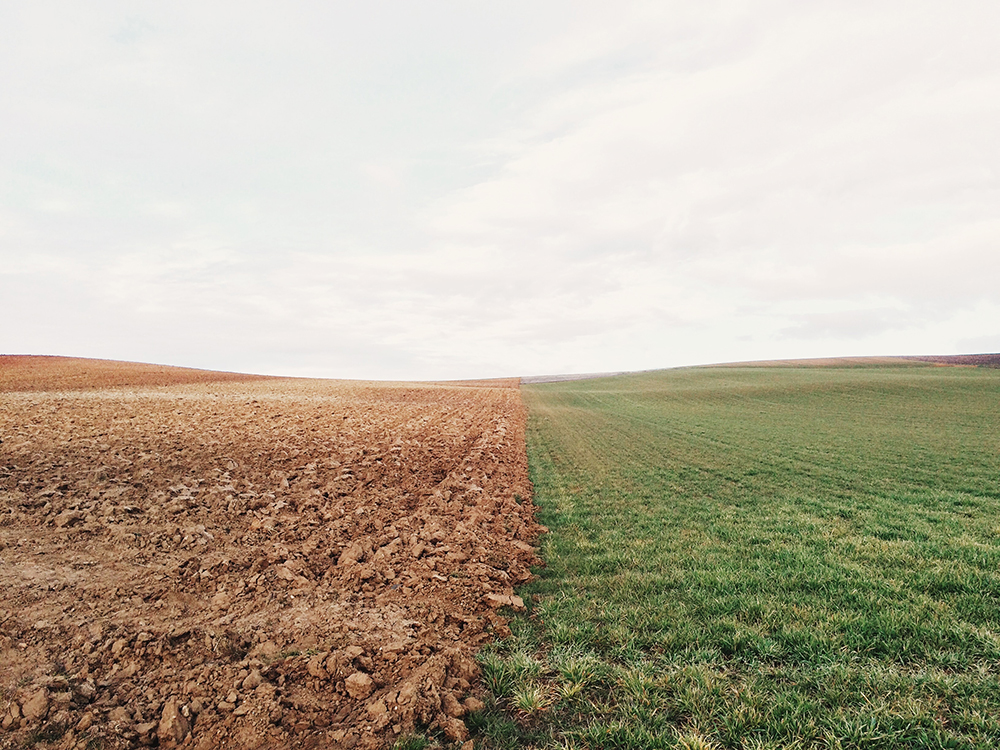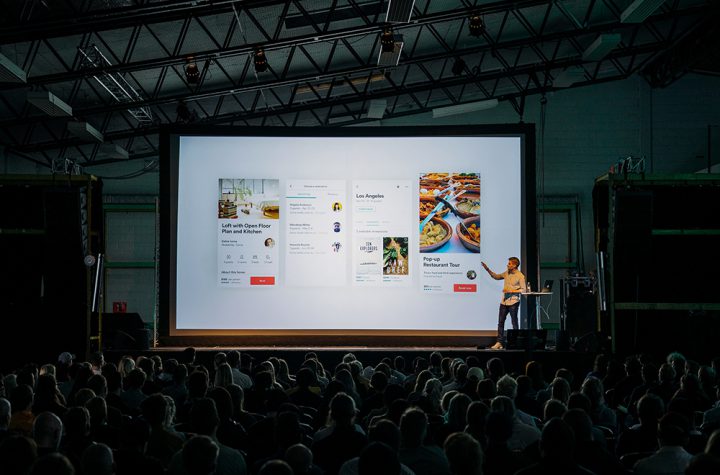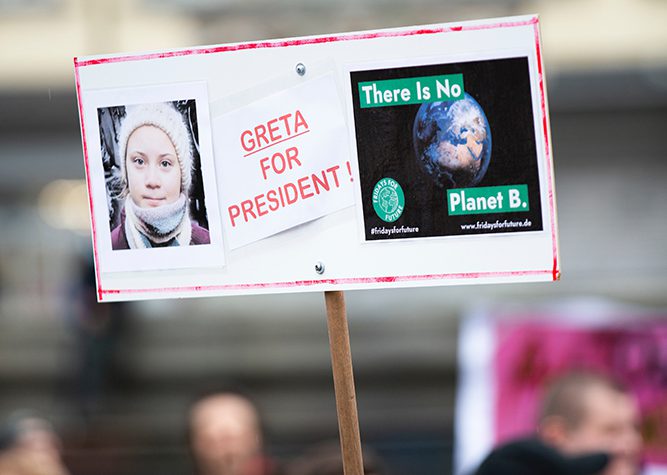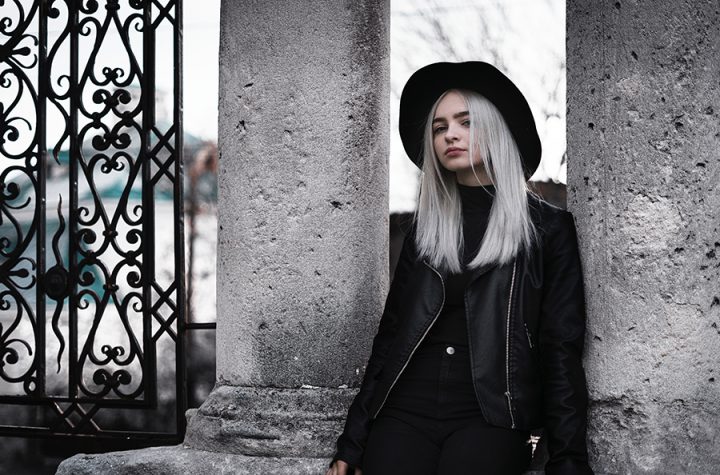
Luca Doncic, pictured here in 2017, joined Real Madrid as a 13-year-old in 2012
Luka Doncic smiled and slowly nodded as the 15,000 inside Real Madrid’s WiZink Center erupted around him.
His long, looping three-point shot had seemed to hang in mid-air, leaving fans open-mouthed as they tracked its progress; long enough, straight enough, sure enough. The ball rippled through the net.
The rivalry between Real Madrid and Barcelona is known the world over as one of football’s fiercest, and El Clasico burns red hot in basketball, too.
Doncic’s long-range buzzer-beater at the end of the third period against Barcelona in December 2017 was as spectacular as anything Lionel Messi and Cristiano Ronaldo produced on the football pitch. Then aged 18, he was already being described as the most promising prospect Europe has produced.
His numbers in that game – 16 points, six rebounds and seven assists – were modest by his own standards. But the poise and precision, the confidence behind that knowing smile, were signs he would soon outgrow the EuroLeague. The teenager’s potential seemed boundless.
Within a year, Doncic was producing similar moments of breath-taking magic in the NBA. He earned Rookie of the Year honours at the end of his first season with the Dallas Mavericks and, before the coronavirus pandemic brought the 2019-20 campaign to a halt, was averaging a near triple-double of 28.7 points, 9.3 rebounds and 8.7 assists, elevating himself into MVP discussions, now aged 21.
Now 21, Doncic is preparing for the resumption of the NBA season with his Dallas Mavericks team-mates
Doncic has stood out as an elite talent since taking his first steps in competitive basketball at seven years old. Those who know him never doubted he would shine on the game’s biggest stage.
Just maybe not quite this soon.
Basketball was a constant in Doncic’s early life. His father Sasa played professionally in Slovenia, Croatia and France, and his godfather is the former San Antonio Spurs, Minnesota Timberwolves and Toronto Raptors centre Rasho Nesterovic. The young Doncic would sit behind the basket while his father played, sneaking on to the court at half-time to practise his jump shot.
When Sasa Doncic joined Olimpija in 2007, Luka also signed for the club and was placed among kids his age in the Under-10s group. The move brought him under the tutelage of Grega Brezovec – but only very briefly.
“I was his coach for exactly 16 minutes,” Olimpija’s basketball school coach says.
“He was much better and taller than other kids his age, and even though he was much better than the others, he was always a great team player and leader. It was noticeable that basketball is in his blood.”
Doncic was moved up to train with the club’s Under-12s team the next day. Two years later, by the time he was 12, his name was eliciting excited whispers from Europe’s major scouts. He was a constant, dominant presence at youth tournaments in Slovenia and, when Olimpija’s select Under-12s or Under-13s would venture abroad, he’d put Barcelona, Lazio and countless others to the sword.
Already comfortably over 6ft tall, he was physically domineering, a smooth, technical operator with the ball in his hands, orchestrating attacks and unleashing streaks of scoring. Despite his smiling demeanour, he was fiercely competitive.
“All the moves you see him doing now in the NBA we saw in Slovenia when he was younger,” says Olimpija’s head of youth basketball Lojze Sisko, who coached Doncic from the age of 11 to 13.
“Of course, now he’s bigger, stronger and faster, but how he’s playing, how he’s reading basketball – all that we saw in Ljubljana.”
By now several major European teams were tracking the young Slovenian. Montepaschi Siena made a concerted effort to prise him from Olimpija, but a rival offer proved impossible to resist. A five-year deal at Real Madrid. Doncic was 13.
Doncic would make his first-team debut at Real Madrid aged 16
Much like his early experiences in Ljubljana, he quickly found himself playing among children three or four years his elder in the Spanish capital. It was one thing to shine against older opposition in his homeland, but to do so for Madrid, who regularly faced the best of European youth basketball, further signalled his special talent.
In 2014-15, a season in which the 15-year-old Doncic split his time between Madrid’s Under-18s and senior reserves, he was named the MVP of the Next Generation Tournament – the youth equivalent of the EuroLeague – after helping Madrid overcome Crvena Zvezda in the final.
“I remember his feet being pretty big for his size,” says Joe Arlauckas, the former Madrid forward who now covers the club as a commentator. “From the people I knew at the time around there, everybody really talked him up. But every year there are three or four kids that they talk up and three or four don’t make it. I didn’t at that point expect to hear much more about him.”
Arlauckas’ scepticism was soon erased and one moment in particular convinced him. It came when Doncic was beginning to appear for the first team, at the end of the 2014-15 season, at the age of 16.
“I remember it perfectly,” Arlauckas says. “It was a shot taken in the warm-up and the rebound came off. The way he was able to jump up, catch the ball on its way down and dribble it behind his back, single-handedly, over to his left hand. It’s something that you don’t see even the top pros doing.
“The way the ball was attracted to his hand like a yo-yo, and his sense of where the ball was and how to get to it – I attribute it to basketball knowledge, but there’s a talent to it and a lot of work that goes into developing that hand-eye coordination.
“From that moment, I fell in love with him.”
In January 2016, with several first-choice guards – including star man Sergio Llull – out injured, Doncic was drafted in by coach Pablo Laso to start a game against CSKA Moscow.
Kyle Hines, the Russian club’s two-time EuroLeague Defensive Player of the Year, remembers first encountering the Madrid prospect, and how quickly opposition coaches learned to respect his ever-developing skills.
“My coaching staff was familiar with him but personally I wasn’t,” Hines says. “What I remember prominently was we were playing the game and our coach was like, ‘He can’t shoot. He’s not going to shoot.’ I remember him telling our guards that we’re going to go deep on him to force him to shoot.”
The advice proved to be misguided. Doncic hit three consecutive three-pointers in two second-quarter minutes.
Doncic made an impression on Hines, one of the European game’s toughest in defence
“People were saying he can’t do this and he immediately stepped in,” Hines continues. “He didn’t react like he was 16 years old. He had a command about the team and a confidence within himself. I don’t think anybody at 16 years old is able to come and play with the poise that he did, especially for a team like Real Madrid that every year are competing for titles.”
It wasn’t all smooth sailing though. Inevitably, having been thrust into elite basketball at such a young age, Doncic was inconsistent, and his errant performances would occasionally draw coach Laso’s ire – the three-point triple-salvo against CSKA, for example, came moments after a few choice words during a timeout.
The way Doncic responded to such reprimands, however, spoke volumes about his ability to shoulder responsibility and quickly confine moments of poor form to the past. In one turbulent game against Turkish side Darussafaka, Doncic could be seen crying as he sat on the bench.
“You see the desire. You see he’s human,” Arlauckas says. “He took a rapping from his coach, and he played terrible in that game. But he came back the next game and played a good game. You see the resilience that you look for in a kid like that.”
In the summer of 2017, Doncic swaggered on to the international stage, representing Slovenia in the EuroBasket tournament with his confidence augmented, having been named the EuroLeague’s Rising Star of the previous season.
During the knockout phase, hosted in Istanbul, he scored 27 points to ease his nation past Latvia and current Mavericks team-mate Kristaps Porzingis in the quarter-final. And the 18-year-old followed that up two days later with 11 points, 12 rebounds and eight assists as Slovenia upset a Spain side replete with NBA stars in the semis.
In the final against Serbia, an ankle injury forced him off in the third quarter, but his part in Slovenia’s unbeaten, nine-win run to the title will be remembered as one of the great individual displays by a teenager in European basketball history.
Doncic, front, centre with selife stick, celebrates with his 2017 Slovenia team-mates
“I think winning that gold medal gave him confidence,” Arlauckas says. “I hate to use the word maturity because he was 18 at the time, but he really became mature as a player. It’s his mentality.
“When he came back and his first game out of the box was a career high, I just shook my head and said, ‘How long can this go for?’ His second game out of the box was a career high again. I said, ‘OK, I’m done trying to prognosticate and doubt this kid. He’s always going to be better than any prediction I come up with.'”
That summer’s EuroBasket also, inadvertently, gave Doncic the chance to establish himself as Real Madrid’s key man. Spain international Llull, Madrid’s starting point guard and the previous season’s MVP, suffered an ACL injury in a pre-tournament friendly, ruling him out for most of the 2017-18 campaign. Doncic would step in to fill the void.
“It was his team. It was his job to put the team on his shoulders,” Hines says. “Seeing him do that at 18, leading them through the entire season, with some of the plays he made and some of the things he was doing, was spectacular.
“A lot of times teams were trying to be super-physical with him because they were looking at him like he’s this kid. But he didn’t back down from anybody. When they challenged him, he challenged them right back.
“That season, I recognised he had a lot of things that other talented players don’t have. Wherever he goes, wherever he plays, I knew he’d be successful.”
By the end of the campaign, Doncic had carried Madrid to a record 10th EuroLeague title, becoming the youngest player to win the overall MVP award, while also retaining his Rising Star honour and adding a Final Four MVP crown. Having declared in April for the 2018 NBA draft, he would take his game to basketball’s biggest stage fully formed, no longer a vaunted prospect but a bona fide, NBA-calibre star.
Doncic’s Mavericks resume their season against Houston Rockets
“He’s won Rookie of the Year. Right now, he has Dallas in a poised position to do well,” Hines says of Doncic’s performances to date with the Mavericks, who traded the rights to fellow point guard prodigy Trae Young and a future first-round pick to acquire the Slovenian from the Atlanta Hawks immediately after the 2018 draft.
“He’s already been an All-Star. And he’s not even 22 years old. He has the potential to be even greater.”
Arlauckas concludes: “You’re looking at a kid who, in a very short period of time, can be the number one player in the world. He can go that far.”





More Stories
Justice Rajiv Shakdher also asked the media houses AGR Outlier Media Pvt Ltd. and Bennett Coleman and Company Ltd. to ensure that no defamatory content is uploaded on social media platforms or displayed on their channels.
Two people have become the first passengers on a Hyperloop, a technology considered to be the future of high-speed ground transport.